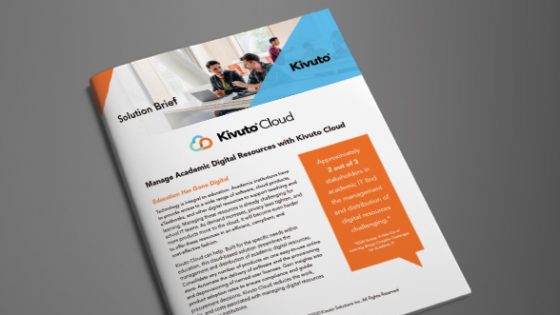Outsourcing IT support is increasingly common in higher education – and with good reason. Along with automation, outsourcing is one of the most straightforward ways for institutions to free up internal resources. And a university’s IT team can accomplish much more meaningful work when they aren’t devoting half their time to helping students install software or reset passwords.
However, the benefits to schools and staff shouldn’t be the only considerations. Saving IT resources cannot come at the expense of ensuring that your students can get the technical help they need. When selecting a partner to take on the responsibilities of your institution’s help desk, student interests must be a top priority.
Here are four things schools should demand of any service provider to which they’re thinking of outsourcing student support.
Reduce Your Institution's Tech-Support Burden
The IT team at the Bochum University of Applied Sciences saw 250 fewer support tickets after outsourcing end-user support around accessing software . Read the case study to discover how.
Provide Support at the Right Time
Being able to get technical support when they need it and in a timely manner is extremely important for students. Someone with an assignment due in a week can’t afford to wait five business days for help installing the software they need to complete it.
Any prospective service provider should have a service-level agreement (SLA) in which they commit to a response time for all support requests. This should serve as a major indicator as to which providers are capable of adequately supporting your students. Ideally, schools should find an organization that responds to support requests within 24 hours.
Hours of operation are another important factor in providing timely support. The good news is that most providers can commit to more generous business hours than a stretched-thin school IT team can. So even if the holy grail of 24/7 is not an option, any service provider with a dedicated support team worth considering should offer an improvement over the hours that students are currently used to.
Provide Support in the Right Ways
We’ve all heard that different people learn better in different ways. This applies not just to skills and lessons but to presenting and absorbing the information necessary to resolve technical problems.
For this reason, it’s worth looking for service providers that offer support through a variety of channels. Some of your students may prefer to resolve technical problems over the phone; others may prefer email. Many service providers also offer a live chat option, which combines the directness of a phone call with email’s ability to provide screenshots.
Which means of providing support is most effective – telephone, email, or chat – is entirely a matter of individual preference. Therefore, to best serve your whole student body, schools should outsource support to service providers that offer all three.
Provide Support in the Right Languages
Colleges and universities are highly multicultural environments. Even if all your students can get by in English, English likely isn’t the language they’re all most comfortable communicating in – or, by extension, the language in which technical support will be the most effective for everyone.
It’s worthwhile for schools to seek out service providers that are capable of offering end-user support in multiple languages. While finding a partner that can offer support in any language isn’t realistic, it doesn’t have to be. Even if a provider can support only the top two or three languages spoken by your student body, it can make a huge difference in overall satisfaction among those students.
Provide High-Quality Support
Last but most obvious: the service provider to which you outsource support must be capable of actually solving the problems that students contact them with.
There are many ways to assess the quality of support potential partners can provide. Look at feedback online. Leverage the Higher Education Vendor Assessment Toolkit (HECVAT) to vet prospects from a data-security perspective. Try to find out each prospect’s net promoter score and user satisfaction rate (ideally from independent sources). Take a deep dive into prospective partners’ SLAs to get a sense of what they promise, then research whether they have a reputation for meeting those promises.
Reduce Your Institution's Tech-Support Burden
The IT team at the Bochum University of Applied Sciences saw 250 fewer support tickets after outsourcing end-user support around accessing software . Read the case study to discover how.













